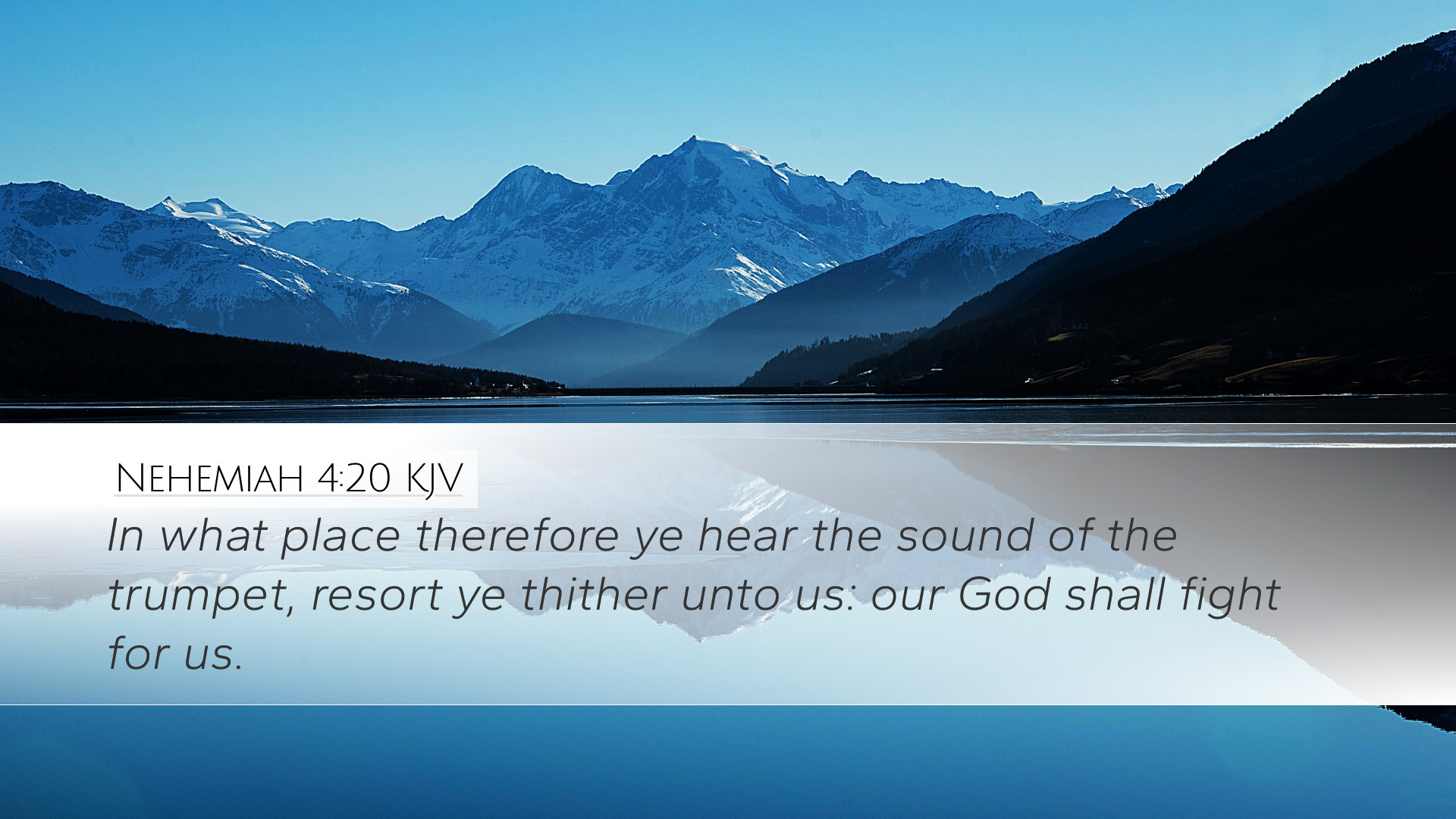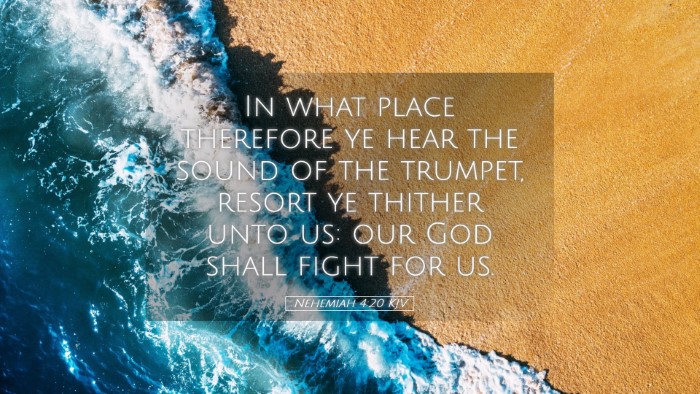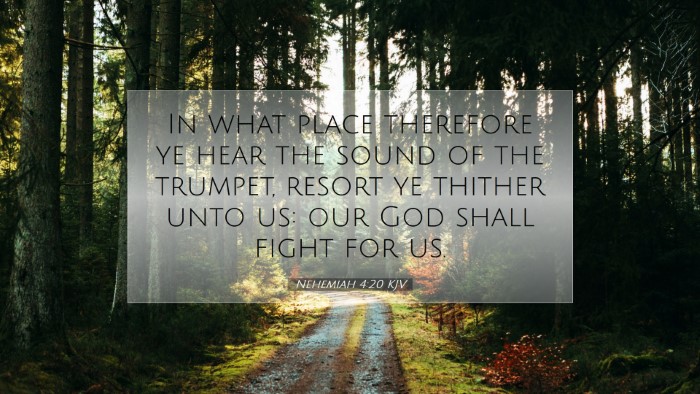Commentary on Nehemiah 4:20
Verse Text: "In what place therefore ye hear the sound of the trumpet, resort ye thither unto us: our God shall fight for us."
This verse is a pivotal part of Nehemiah's leadership during the rebuilding of the walls of Jerusalem amidst opposition. It encapsulates the themes of divine assistance, community action, and the unity required to achieve God's purposes.
Contextual Background
The book of Nehemiah describes the return of the Jewish people to Jerusalem after their Babylonian exile, focusing on the efforts to rebuild the city's walls and restore its identity. This rebuilding process faced significant external opposition and internal challenges. Nehemiah's leadership was marked by both prayer and action, as he relied on God while mobilizing the people to work collaboratively.
Verse Analysis
Nehemiah 4:20 was spoken in the context of facing threats and discouragement from surrounding enemies. As they continued their work, Nehemiah encouraged the people to stand firm in their task and trust in God's protection and assistance.
Key Themes
- The Sound of the Trumpet: The trumpet served as an alarm and a rallying call for the people. In ancient Israel, trumpets were used to gather people for wars and important gatherings. This metaphor highlights the need for readiness and unity.
- Divine Assurance: The phrase “our God shall fight for us” reflects a profound theological conviction that God is an active participant in the struggles of His people. This reassurance would have been vital for the Israelites, instilling confidence in the face of adversity.
- Collective Responsibility: Nehemiah emphasizes the need for collective action. Each person's involvement is crucial, underscoring a community's strength in achieving God's mission.
Insights from Commentary Sources
Matthew Henry
Henry notes that Nehemiah's leadership was marked by a call to vigilance and preparedness. He emphasizes how important it is for the community to respond to the calls for unity, especially in times of danger. According to Henry, the trumpet represents not just a signal but a summons to engage in spiritual warfare, where God Himself is on the offensive against their foes.
Albert Barnes
Barnes comments on the significance of Nehemiah’s instruction for the people to gather where the trumpet sound was heard. He describes it as a practical and strategic approach to dealing with threats; a divine presence accompanies their efforts. This reliance on God’s intervention is paramount, for the work they undertake is beyond mere human capability. God’s providence is their true defense.
Adam Clarke
Clarke emphasizes the need for perseverance and faith among the Israelites. He interprets the trumpet call as both a literal and metaphorical invitation for the people to respond to God’s call actively. He insists that in every conflict faced, believers ought to remember that God stands with them, fighting for their cause, thus encouraging them to remain resolute in their mission.
Theological Implications
This verse encapsulates key theological elements such as divine sovereignty, human agency, and the necessity for community involvement in fulfilling God’s plans. In a modern context, pastors and theologians can draw parallels to contemporary challenges where believers are called to stand together, trust in God’s promises, and work toward common goals.
Practical Applications
- Encouraging Unity: Just as Nehemiah called the people to unite, church leaders today should promote collaboration among congregants in facing current challenges.
- Trust in God: The assurance that God will fight for His people serves as a reminder for individual and collective faith in God’s unseen hand in life’s battles.
- Preparation for Battle: Spiritual preparedness is essential; congregations should be equipped to respond to the calls for action, whether through prayer, service, or evangelism.
Conclusion
Nehemiah 4:20 serves as a powerful reminder of God's active role in the lives of His people as they pursue His work. The trumpet's sound is a call to come together amidst trials, trusting in the promise that God is a defender and fighter for His people, uniting them in purpose and action.


